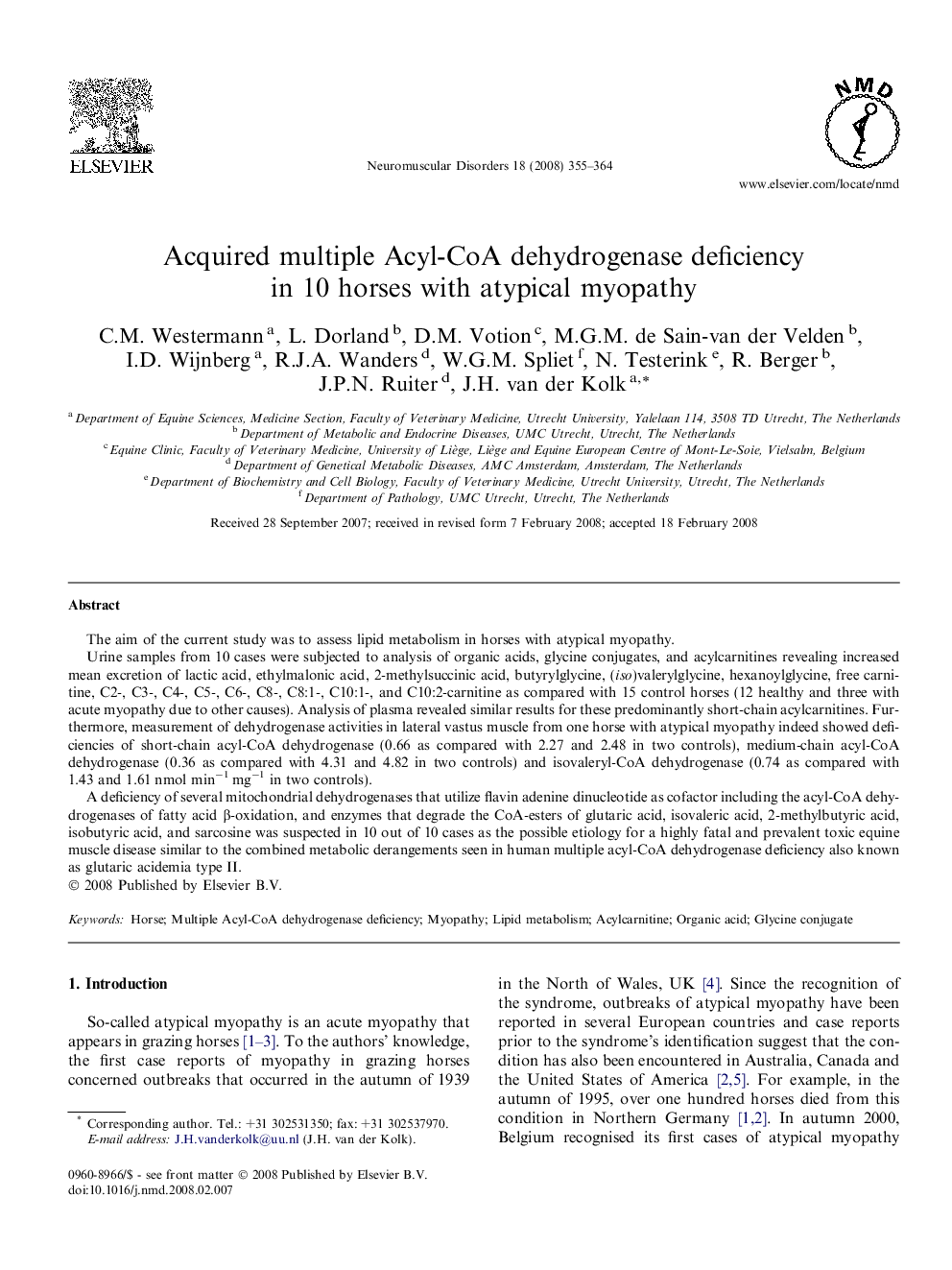| Article ID | Journal | Published Year | Pages | File Type |
|---|---|---|---|---|
| 3081567 | Neuromuscular Disorders | 2008 | 10 Pages |
The aim of the current study was to assess lipid metabolism in horses with atypical myopathy.Urine samples from 10 cases were subjected to analysis of organic acids, glycine conjugates, and acylcarnitines revealing increased mean excretion of lactic acid, ethylmalonic acid, 2-methylsuccinic acid, butyrylglycine, (iso)valerylglycine, hexanoylglycine, free carnitine, C2-, C3-, C4-, C5-, C6-, C8-, C8:1-, C10:1-, and C10:2-carnitine as compared with 15 control horses (12 healthy and three with acute myopathy due to other causes). Analysis of plasma revealed similar results for these predominantly short-chain acylcarnitines. Furthermore, measurement of dehydrogenase activities in lateral vastus muscle from one horse with atypical myopathy indeed showed deficiencies of short-chain acyl-CoA dehydrogenase (0.66 as compared with 2.27 and 2.48 in two controls), medium-chain acyl-CoA dehydrogenase (0.36 as compared with 4.31 and 4.82 in two controls) and isovaleryl-CoA dehydrogenase (0.74 as compared with 1.43 and 1.61 nmol min−1 mg−1 in two controls).A deficiency of several mitochondrial dehydrogenases that utilize flavin adenine dinucleotide as cofactor including the acyl-CoA dehydrogenases of fatty acid β-oxidation, and enzymes that degrade the CoA-esters of glutaric acid, isovaleric acid, 2-methylbutyric acid, isobutyric acid, and sarcosine was suspected in 10 out of 10 cases as the possible etiology for a highly fatal and prevalent toxic equine muscle disease similar to the combined metabolic derangements seen in human multiple acyl-CoA dehydrogenase deficiency also known as glutaric acidemia type II.
